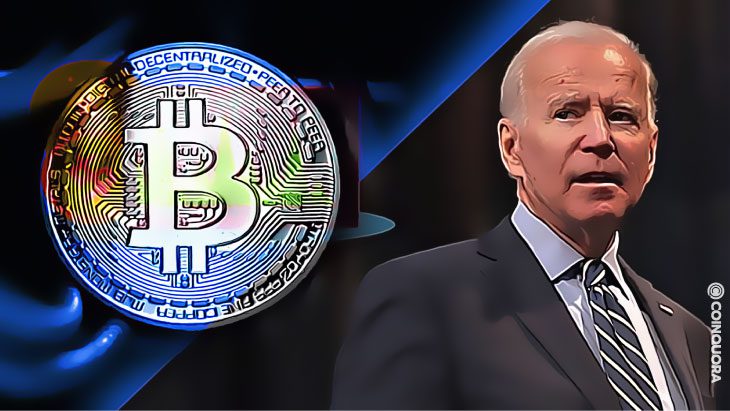- Joe Biden is ready to sign an executive order on cryptocurrency policy.
- This includes creating CBDC or Digital Dollar soon.
- Previously, the White House had signed an order to study the threats in the crypto market.
In an approach to creating Central Bank Digital Currency (CBDC), US President Joe Biden looks forward to signing a much-awaited executive order on cryptocurrency. This order is directed to the country’s Department of Justice, Department of Treasury, and other agencies, asking them to explore the economic and legal consequences of creating CBDC.
The news of this order was released by the Federal Reserve report, detailing the impact of the digital dollar or CBDC. Biden is expected to issue the executive order this week.
As tweeted by Dennis Porter, the host of the Smart People Shit podcast, Biden’s executive order will explore the consequences of CBDC.
BREAKING: Biden #Bitcoin Executive Order will “Explore a U.S. Central Bank Digital Currency”.
— Dennis Porter (@Dennis_Porter_) March 9, 2022
In detail, Biden’s order affirms a 180-day deadline for the series of reports on ‘’the future of money’’ and the role of cryptos in the emerging landscape.
According to an anonymous source:
We could see a significant shift in policy in 180 days. This is a likely step toward the creation of a central bank digital currency.
Last year, the White House announced that it was deliberately learning the broad spectrum of the cryptocurrency market. The study also included an executive order to cope with escalating threats like cyber attacks and ransomware in the crypto market.
Moreover, the new executive order sprouts in between two increasing concerns. The first concern is the use of cryptocurrency by Russian elites to avoid Western sanctions imposed on it. This has put Russia away from large parts of the global economy. Meanwhile the other concern is over the initiatives taken by countries like China to create their own cryptocurrencies.
However, in order to create the digital dollar, Biden’s order will ask the Department of Justice to decide if a new law is needed or not. Also, if it happens, the law will work with the Treasury Department, Securities and Exchange Commission, Consumer Financial Protection Commission, Federal Trade Commission, and other agencies to examine the impact of CBDC.


